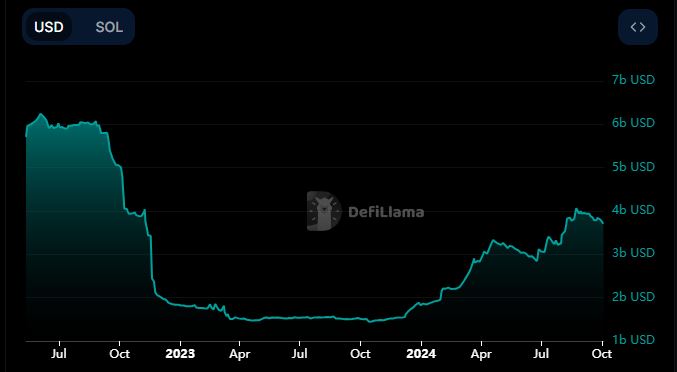Altcoin
Examining why Solana has been unable to sustain its hikes in H2 2024
What’s going on with Solana lately and can it change soon?

- There has been a significant shift in Solana’s demand dynamics
- May be worth assessing the correlation between SOL’s demand and Solana’s stablecoin marketcap
Does the Solana ecosystem have something to do with SOL’s struggle to get back above $200? The cryptocurrency demonstrated robust demand in the first half of 2024, allowing it to bounce back strong after every dip. However, the same cannot be said for SOL’s recent performances.
SOL had weaker bounce-backs over the last 3 months and this aligns with some Solana network observations. In fact, Solana’s marketcap growth so far this year demonstrates an interesting correlation with SOL’s price performance.
Solana’s stablecoin marketcap briefly soared above $4 billion in the last week of August. However, it has since seen significant outflows and is now, down to $3.72 billion. The last time such a major dip was seen was from mid-April to the last week of June.
The cryptocurrency struggled to soar back to $200 during the period from April to June. Similarly, its recent bullish attempts demonstrated weak momentum.
Is Solana network activity slowing down?
Solana’s stablecoin marketcap has been enjoying aggressive growth during times when the market has been experiencing a surge in demand. For Solana, that was largely driven by strong memecoin demand in Q1 2024. However, the hype around the memecoins seems to have slowed down, especially since June.
The slowdown in network activity can be more accurately observed through network fees. Solana fees were at their highest in March, which was around the same time that network demand and utility were also at their highest.
Source: Dune
The network fees were also based on SOL’s value, which also fluctuated based on market demand. This means it may not necessarily provide the most accurate assessment of network performance. The Solana stablecoin marketcap is more in tune with on-chain transactions.
The initial surge in transactions peaked in April, followed by a dip and a higher peak in July. Transactions have since slowed down, reflecting the slowing network utility.
It is evident based on the above findings that the network demand has been cooling down, especially in the last 3 months. As a consequence, the organic demand that propped up SOL’s value is not as strong as it was in the first half of the year.
This may be the reason why SOL does not seem to bounce back as strong as it used to.


